The baking industry supply chain is certainly not a piece of cake.
When a bakery business strives to be competitive, often sourcing ingredients from across the globe, the supply chain becomes a complex logistical battle in an increasingly volatile trading environment.
Factors causing disruption to the supply chain range from inflation and the war in Ukraine, to the energy crisis, and climate change, as well as Covid, Brexit, and labour shortages.
Here, we take a closer look at the challenges facing the sector and how businesses are overcoming them and strengthening their supply chains. We also learn about the advantages of using technology, and the concerns and initiatives surrounding traceability and sustainability.
Input inflation
One of the banes of a British bakery balance sheet in recent times has been the impact of inflation on ingredients costs.
“Although the global FAO food price index continues to fall, the UK food input price inflation remains close to record highs for both domestically produced and imported products,” notes Tim Clarkson, cluster director UK and Ireland at Dawn Foods. “The bakery sector remains particularly exposed to input price inflation with contractual obligations – production, energy, labour and logistics costs creating significant lag in the rate of inflation reduction.”
When looking at data across all inputs into production of bakery products, we can see a series of increases in recent years contributing to inflation. Steve James, Statistical Production Analyst at the Office for National Statistics, pinpoints the reasons for the largest monthly leaps. These include an increase of 2.3% in January 2022 driven by higher prices of wheat flour, 3.9% in April 2022 due to energy hikes, a further 2.4% in June 2022 from price increases for dairy products, and 2% the following month because of price rises for vegetable and animal oils.
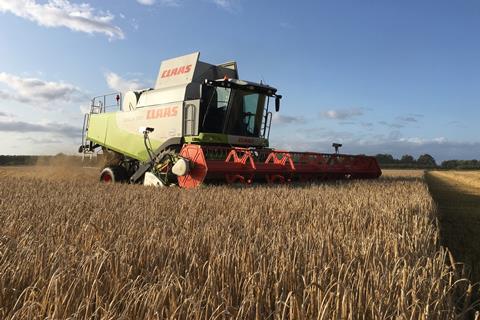
Meanwhile, Agriculture & Horticulture Development Board (AHDB) market intelligence analyst Olivia Bonser warns that UK farmers have chosen to grow a greater proportion of feed wheat for animals rather than milling wheat for flour as a way of trimming input costs. “These concerns are keeping premiums elevated for now,” she adds.
The cost of war
Many of the rises in input costs can be attributed to the ongoing conflict in Ukraine – the country is a substantial exporter of wheat, sunflower oil, sugar, eggs, and fertiliser.
“Even if British bakeries are not using the Ukrainian ingredients themselves, the war has a ripple effect throughout the food supply chain as fixed and rolling contracts are beginning to be re-negotiated with increased costs,” comments Dr Christian Reynolds, senior lecturer at the City University’s Centre for Food Policy in London.
While the Black Sea Grain Initiative has relieved some supply side pressures and helped mitigate price spikes over the past 12 months, more volatility seems likely following Russia’s decision to pull out of the UN-brokered deal this week (17 July).
The war also exacerbated the energy crisis in the UK, which is increasingly dependent on oil and gas imports due to declining reserves in the North Sea. “Energy prices are still really high for commercial use, and it doesn’t look like it’s going to change anytime soon,” laments Dr Reynolds. This adds costs to almost every step of the supply chain, from harvesting and processing ingredients using machinery to delivery via vehicle fleets to factories.
Subject to delays
Extended lead times for imported materials can form a major headache for both procurers and accountants. “There still appears to be a knock-on effect from Covid, but also post-Brexit there are more checks by port health authorities, which we combat by holding higher stocks on site,” says Silvery Tweed managing director Bob Gladstone. “Ultimately, this means tighter cashflow and higher borrowing to ensure we maintain supply to our customer.”
These delays could have a much bigger impact on smaller bakery businesses, which do not have the ability to store such quantities of stock on site.
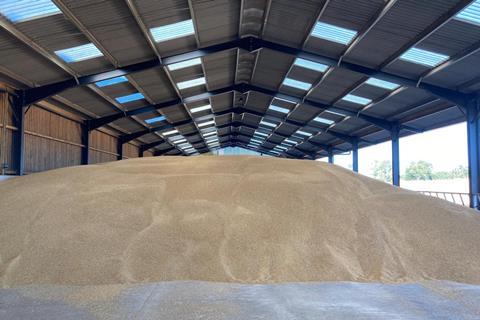
Bakery supply solutions
While some current issues could be considered beyond resolution at present, there are some things a business can do to tackle the challenges affecting the supply chain and even strengthen it.
“Getting access to better data is one of the keys to success”
TraceGains international marketing manager Bal Chand encourages bakeries to forge better, collaborative, relationships with suppliers, and identify contingencies for raw materials. He also suggests gaining a better visibility of the supply chain with more robust horizon scanning to spot emerging risks quickly and act upon them.
“Getting access to better data is one of the keys to success,” adds Chand, noting that teams need to work with a “single source of truth” – the tech term for a central repository of aggregated data. By investing in digital transformation projects, business can standardise data capture and automate the flow of data across the supply chain.
Baker & Baker procurement director Hendrik Zuur concurs with Chand about having comprehensive working relationships with suppliers, along with transparent due diligence and selection processes. The bakery manufacturer is said to have focussed heavily in recent years on availability forecasting and efficient purchasing data visibility to drive better performance, cross functional collaboration, and consistency of supply.
Power up with tech
Technology is something that can be employed to reap quick benefits for the supply chain, and offer significant return on investment.
“On the whole, all bakers use many of the same suppliers, so creating an industry data network where standardised data can be created and shared will massively speed up processes and decision making,” comments Chand at TraceGains.
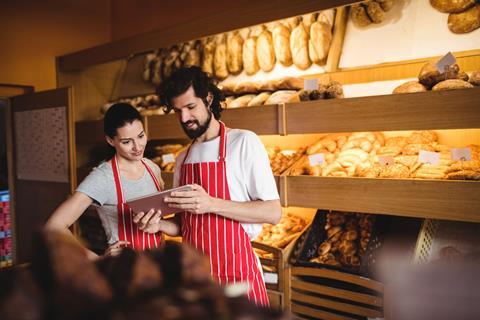
Utilising AI in critical areas such as monitoring raw material quality can help reduce rework and recalls by over 50%, asserts Chand, with savings for larger businesses running into the hundreds of thousands of pounds. Better tech tools can also impress and retain employees, an important consideration for an industry struggling to secure top talent.
According to Chand, digital solutions have enabled TraceGains customers to reduce sourcing and supplier approval time by 50%, and fulfil 75% of resourcing needs. It has also helped increase business by 50% during Covid, improve delivery times and accuracy through cleaner supply chain data, and cut product development time by 75% through digitalisation of aggregated data.
Looking into visibility
As Chand flagged, Joris Kolff, senior director for food & beverage at Aptean also believes data and technology is vital; providing businesses with the tools and insights they need to quickly adapt to a changing marketplace and navigate disruption, improve process efficiency, and offer a holistic view of operations.
This can be achieved through implementation of food-specific software solutions such as Enterprise Resource Planning (ERP), Product Lifecycle Management (PLM) and Manufacturing Execution System (MES), which “close that critical gap” by collating a company’s data into one system.
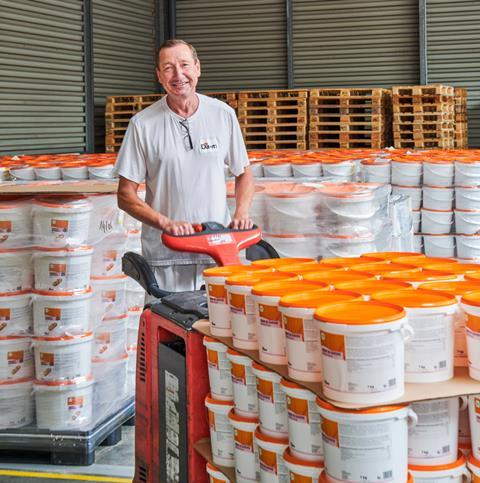
“Increased visibility can improve planning of areas including your inventory levels where further clarity can help you to ensure that the correct levels of raw materials are ordered, reducing product and ingredient wastage,” adds Kolff.
Dawn Foods’ Clarkson notes that automation improves factory efficiency, while automated systems can also “help with robust traceability to support ever-changing food audit standards”.
In addition, Silvery Tweed’s Gladstone sees automation as a means of reducing the reliance on the pool of unskilled labour, and hopefully a means to “encourage more apprenticeships”.
A see-through chain
Traceability across the supply chain is “absolutely crucial”, says Baker & Baker’s Zuur, who says it has been driven both by customer and regulation requirements. “Human rights concerns throughout the supply chain and the impact on the environment from specific raw materials appear to be at the forefront of shopper buying decisions.”
Chand at TraceGains agrees, claiming the typical linear, complex and opaque supply chains are a thing of the past. “Networked supply chains where collaboration and transparency are a strategic focus for many in the business,” he notes. “It builds resilience and means you can get better, often primary data, in key areas of sustainability, quality and provenance.”
Aptean’s Kolff considers traceability to be particularly important to bakeries producing free-from products, due to the common use of ingredients containing allergens such as gluten, nuts, and eggs. Damming research making headlines recently found that more than a third of surveyed items labelled as vegan, including muffins and wraps, actually contained traces of animal products.
Meanwhile, Dawn’s Clarkson reckons consumers are still more concerned in general about the price of a baked product, but notes that they are “seeing increased interest in the origins of some ingredients such as palm oil and cocoa”.
Sourcing ingredients in the UK has an added benefit according to Silvery Tweed’s Gladstone: “Field-to-fork traceability comes as standard!”
Planet first
Much like traceability, the lean towards sustainability is being led by legislation and consumer demand.
”Diving deeper into raw materials and the wider supply chain will give you a clearer picture of how sustainable your business is”
TraceGains’ Chand thinks it is great that many businesses in the baking industry are hiring board level sustainability professionals to drive systematic change, but he admits it’s a “fine balancing act every single day” as companies must always ensure availability of products at an affordable price whilst maintaining margins and profitability.
Délifrance global CSR director Nathalie Genebes points to its recent UK bakery market research, which found that 71% of consumers surveyed said they wanted to know more about the sustainability of bakery products. She said that supply chain operators need to focus on three key areas of sustainability: reducing carbon footprints, using recyclable packaging, and reducing food waste.
As an example of setting ambitious but realistic decarbonisation goals, Baker & Baker recently announced 2040 as its target year for achieving net zero.

“Diving deeper into raw materials and the wider supply chain will give you a clearer picture of how sustainable your business is, through areas such as animal welfare, ethics and deforestation,” adds Genebes.
Dawn Foods says it is looking at a “local for local philosophy” for sourcing of ingredients to help improve lead times and efficiency, and reduce carbon emissions. Interestingly, climate change could actually have a positive effect in this, as it could provide opportunity for UK farmers to start growing ingredients traditionally imported from warmer countries.
Silvery Tweed’s Gladstone told British Baker that domestic growers are starting to look at “more diverse crops with a potential for higher reward in the face of reducing farm subsidies”, although this should be viewed as a longer-term objective.
In both a literal and figurative sense, what you get out of the supply chain depends on what you put into it. Bakery businesses can benefit from careful consideration of its ingredients suppliers and investments in technology to improve data management and traceability, while taking strides towards more sustainable operations.
ADVERTISEMENT: TRACEGAINS

TraceGains is revolutionising supply chain agility through an innovative Networked Ingredient Marketplace.
The ability for businesses to seamlessly connect with partners through a networked marketplace is essential for collaborating to solve today’s unprecedented supply chain challenges. Information about ingredients and supply chain partners flows instantly using intelligence and automation.
Our patented PostOnce™ technology allows authorised stakeholders to share and receive vital information, precisely when, where, and how they need to operate efficiently and remain competitive. For over 15 years, TraceGains has provided the world’s only holistic networked solution for global brands gaining speed and control over compliance and product development.
Using the power of a network, brands collaborate over 466,000 ingredients/items and 7,000,000 documents, across more than 64,000 global supply chain locations, creating greater agility, resilience, and joined sustainability within the business ecosystem that masters the modern supply chain.
Through the power of a global network, supply chain agility is achievable.




















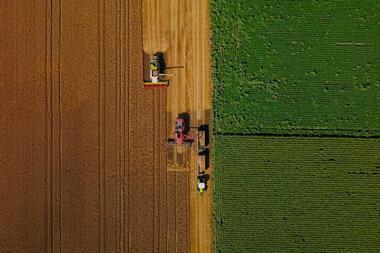

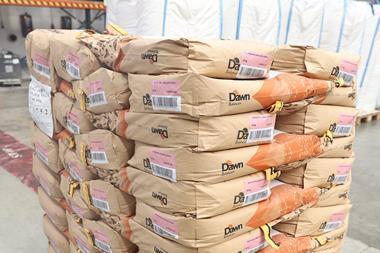
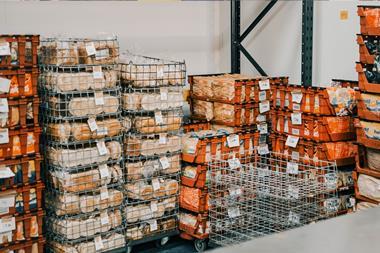




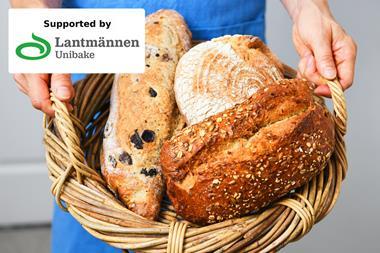


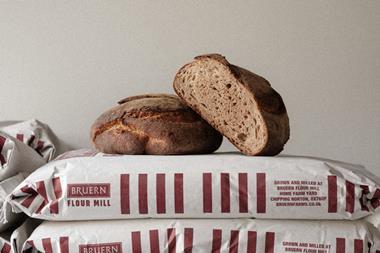

No comments yet